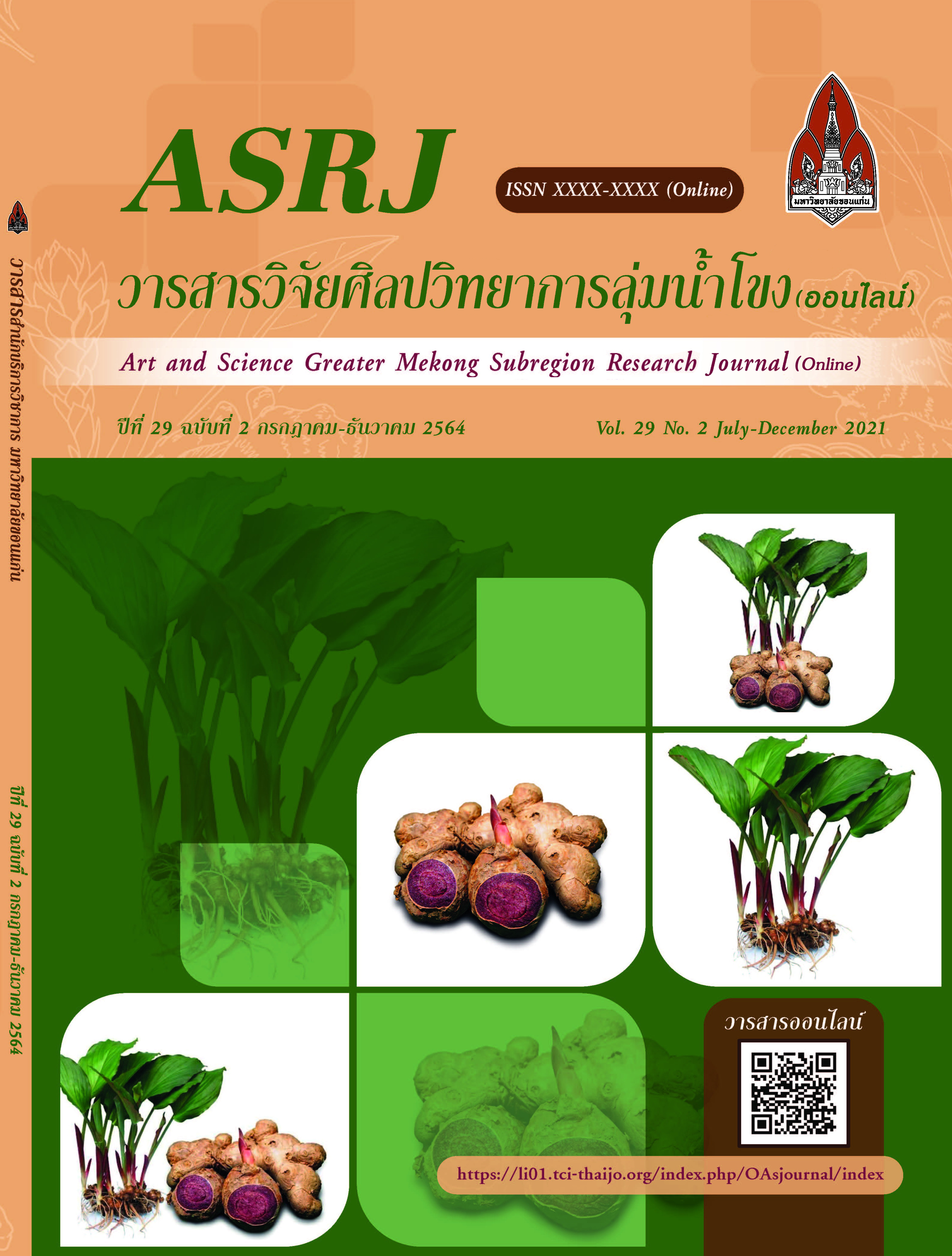ภาษาแม่กับการเสริมสร้างทักษะการฟังและทักษะการพูดภาษาอังกฤษสำหรับนักเรียนกลุ่มชาติพันธุ์ Mother tongue as strengthening English listening and speaking skills for ethnic students
Main Article Content
Abstract
บทคัดย่อ
ในศตวรรษที่ 21 ภาษาอังกฤษมีความสำคัญและจำเป็นอย่างมากในการดำเนินชีวิตของผู้คน และมีความสำคัญในหลาย ๆ ด้าน โดยเฉพาะอย่างยิ่งในด้านการศึกษา แต่ปัจจุบันพบว่า การเรียนการสอนในรายวิชาภาษาอังกฤษนั้นยังคงประสบกับปัญหาโดยเฉพาะในผู้เรียนกลุ่มชาติพันธุ์ที่ใช้ภาษาแม่ในการสื่อสารเป็นหลักซึ่งส่งผลต่อการเรียนรู้ภาษาอื่น แต่ในทางทฤษฎีการเรียนรู้ด้านภาษานั้น ภาษาแม่ถือว่าเป็นภาษาที่มีอิทธิพลและเป็นภาษาพื้นฐานในการส่งเสริมและพัฒนาการเรียนรู้ภาษาอื่น ๆ ของผู้เรียน โดยรูปแบบการจัดการเรียนรู้ที่สอดรับกับทฤษฎีการเรียนรู้โดยใช้ภาษาแม่เป็นฐานสำหรับนักเรียนกลุ่มชาติพันธุ์ คือ การจัดการเรียนรู้แบบพหุภาษา ซึ่งได้รับการยอมรับจากองค์กรระดับโลกอย่างยูเนสโก อีกทั้งยังนำมาจัดการศึกษาในประเทศไทยโดยองค์การทุนเพื่อเด็กแห่งสหประชาชาติหรือยูนิเซฟที่ได้จัดโครงการสะพานเชื่อมโยงไปสู่อนาคตอันสดใส ซึ่งเป็นโครงการจัดการศึกษาแบบทวิ–พหุภาษา (ภาษาไทย–มลายูถิ่น) ในโรงเรียนเขตพื้นที่จังหวัดชายแดนภาคใต้ ทั้งยังประสบความสำเร็จในการจัดการศึกษาและก่อเกิดประโยชน์มากมายในหลาย ๆ ด้าน เช่น การเมือง เศรษฐกิจ สังคม รวมทั้งพื้นฐานการใช้ชีวิตของผู้คนในสังคมที่เท่าเทียมในด้านภาษาและวัฒนธรรม โดยวิธีการสอนหนึ่งที่สอดคล้องกับการจัดการเรียนรู้แบบทวิภาษาและพหุภาษาโดยใช้ภาษาแม่เป็นฐาน คือ วิธีการสอนภาษาแบบเน้นภาระงาน (Task Based Language Teaching : TBLT) ซึ่งเป็นวิธีที่เน้นให้ผู้เรียนได้ใช้ภาษาแม่ในกิจกรรมการเรียนรู้เพื่อส่งเสริมและพัฒนาการใช้ภาษาเป้าหมายอย่างเต็มที่ โดยผ่านกระบวนการปฏิบัติภาระงานที่ได้รับมอบหมาย
คำสำคัญ : ภาษาแม่, การจัดการเรียนรู้แบบพหุภาษา, นักเรียนกลุ่มชาติพันธุ์
Abstract
It is clearly seen that, English is very important for the living in 21st century, also for education. At present find that, there are some problems about English learning especially ethnic students that use mother tongue normally, so that be affected to other languages learning. In the other hands, language learning theories include that the mother tongue as the influential language and the basic language to strengthen other languages of the students. The educational model is agreeable with the mother tongue-based learning theory for the ethnic students are Bilingual Education and Multi Lingual Education, that are accepted by UNESCO and were used in Thailand by UNICEF with Bilingual Education and Multi Lingual Education project for Thai- Malay students in the schools of the southern border provinces. It has also been successful in providing education and has brought many benefits such as politics, economy, society, as well as the foundations of living in a society that are equal in language and culture. And the teaching method that is aligned with bilingual and multilingual learning education is Task Based Language Teaching (TBLT), which is the student-centered approach. The students can use their mother tongue fully to improve their aim languages with the process of the tasks.
Keywords: Mother tongue language, Multi Lingual Education, Ethnic students


